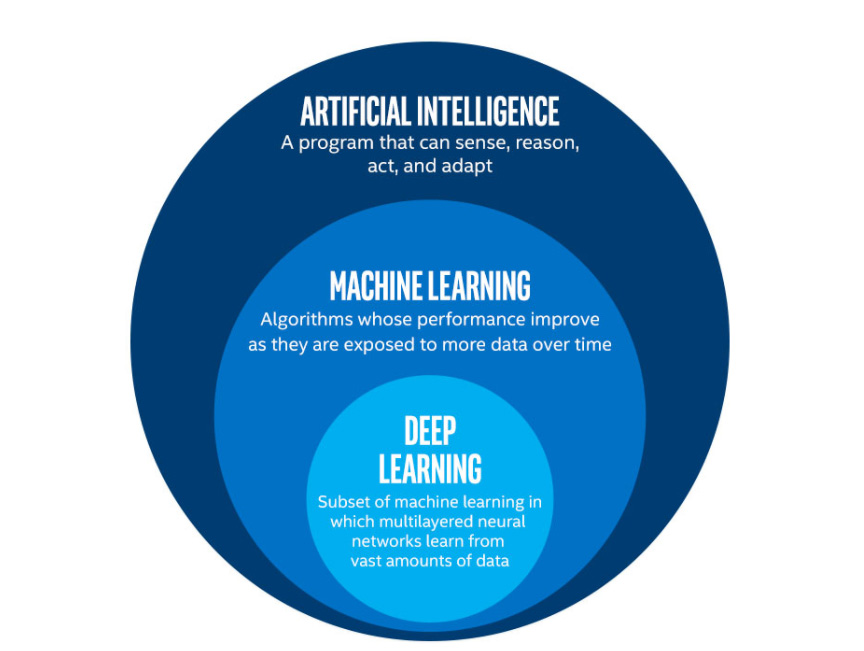Retracing Artificial Intelligence and Machine Learning’s Impact on Marketing
The purpose of marketing never changes. Encouraging consumers to make a purchasing decision is one of a marketer’s top goals. That, along with brand awareness, and having a better understanding of consumer behaviours, make the arsenal of a good marketer. Nowadays, however, more and more tools emerge and we are being constantly overflown with options […]

The purpose of marketing never changes. Encouraging consumers to make a purchasing decision is one of a marketer’s top goals. That, along with brand awareness, and having a better understanding of consumer behaviours, make the arsenal of a good marketer.
Nowadays, however, more and more tools emerge and we are being constantly overflown with options to choose from. Artificial intelligence-based technologies and machine learning are some of these tools, that enable marketers to step forward.
AI Automation in Marketing
Technological advancements allow for automatic delivery of tailored and relevant customer experience-based webpages to be created. An original study, conducted by Demandbase, concluded that more than 80 per cent of professional marketing experts use AI in one of their operations. Some of the subjects of the study shared that artificial intelligence-based systems can be useful in the planning process. Others use AI in the execution stage of their campaigns.
What is AIM in Marketing?
So retracing since the beginning of AI usage in marketing, let’s see how these systems have impacted our consumer world so far. AIM (Artificial Intelligence Marketing) is a form of marketing that relies on leveraging the practical use of artificial intelligence concepts like Bayesian Network and machine learning. The majority of the operations usually act as substitutes for human actions in a certain campaign, where a computer or an algorithm performs the action by automating it.
AIM first started as a concept in the early 2000s. The idea came to live in academic circles, where machine learning algorithms were discussed as potential projects to develop. Tech giants like Amazon and Google also researched the subject but there weren’t any major advances in the field until 2009.

In 2009, Netflix came up with an award called the “Netflix Prize” which had the sole requirement of people to come up with an algorithm that predicts whether someone would enjoy a movie or not based on certain criteria from already created databases. Team “BelKor’s Pragmatic Chaos” won the grand prize of $1 Million by coming up with the first Netflix algorithm to successfully predict movies matches based on a user’s criteria.
Nowadays, retracing that, you can clearly see how big a part of Netflix’s success this algorithm has played. It has definitely returned a lot on the initial investment of $1 million. You know how based on a few shows you’ve watched, your current country, movies and preferences, on Netflix, you get a constant flow of suggestions. If it has happened to you to start watching something and then you end up watching something else right after it finishes, then the algorithm has worked for you too.
Keeping people engaged on the platform is one of the algorithm’s priorities in this case.
Afterwards, more machine learning algorithms came into existence, some focusing on gathering big data, others on analyzing, and optimizing experiences. Marketers saw the potential of deep learning and had to break down why in the end it decided to serve a given user certain content over another. Thus, AI ceased to function as a black-box, and marketers constantly optimize their tools, in order for them to throw in the best-matched content possible.
Augmented Intelligence and Deep Learning in Marketing
Marketers demand control over automation. They rarely leave things in the hands of AI without optimising stuff. In order to make great use of an advanced technological system, you need to know how it works, what parameters it acts upon and how to adapt it properly to the service you are promoting or improving.
There are also many A/B testing algorithms that greatly facilitate the ultimate decision a marketer has to make. There are many algorithms like Predictive Targeting that detect opportunities based on data-backed suggestions to further boost the revenue of a certain project.

Nowadays, AI isn’t used as a decision-maker, but instead as a tool to recommend the decision-maker’s choices and to simulate the various outcomes of these choices. And while AI can be a broadly used term, Deep learning is a network that simulates the activity of a human brain. A superhuman brain, that can quickly analyse big portions of data. Gathering data and storing it properly in moderated databases greatly enhances the use of deep learning, which can parse it and recommend customer experience based on key takeaways.
Humans rarely can go toe to toe with AI on activities that are data-driven, like SEO, for example. Deep learning is also used in RTB (Real-time bidding) for media buying of ad space. Chatbots, use Natural Language Processing, which is another form of Deep learning. Automatic translation, as well as other automatic text generation like:
- Automatic image captions
- Speech recognition, voice search
- Automatic Translation in several languages for your website
- Auto-generated copy
And many others.
Where is AI now in Marketing?
With so many uses in marketing and business, AI is no longer considered a novelty, but a must for big businesses. Smarter decision-making, technology-improved analysis and increased revenue by optimising a business model are only some of the uses of AI models. Nowadays, cloud infrastructure has made AI widely accepted, scalable, and affordable.
The experiences which AI and modern technology enable wouldn’t otherwise be possible, since they solve problems at an unfathomable speed for a human being. Making decisions with little human involvement is something else that can greatly reduce the time spent by top managers on certain problems that they’ve come across.
And although data might be the key component of making the right decision, it’s not always the only one needed.
Conclusion
After taking a look into the past of AI and Deep Learning, and how quickly it’s risen, the future looks bold. Generally speaking, a more hybrid approach is expected in marketing. An algorithm cannot bear the responsibility for its own decisions, thus human involvement is needed, especially on the top levels of management.
Most likely, brands will evaluate their own needs and the level of control they want over their algorithms, in order to achieve the best results. Whether you are going to trust the AI algorithm entirely, or you are going to A/B test it with every step along the way, it is up to you. But know this, Artificial Intelligence will be a big part of marketing. It already is.

